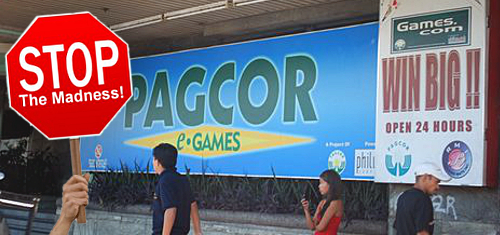 Confusion continues to reign over the Philippines gaming industry after the country’s new president warned that “online gambling must stop.”
Confusion continues to reign over the Philippines gaming industry after the country’s new president warned that “online gambling must stop.”
On Friday, Andrea Domingo, the new chairperson of the Philippine Amusement and Gaming Corp (PAGCOR), gave a local radio interview in which she announced that PAGCOR would halt the issuance of any new eGaming licenses until it determines what exactly President Rodrigo Duterte meant by “online” gambling.
PAGCOR issues ‘eGaming’ permits to internet cafés and eBingo parlors managed by companies like PhilWeb and Leisure & Resorts World Corporation (LRWC). These outlets offer Philippine nationals the ability to use computer terminals offering online card and table games, video poker, slots and lottery games. Since 2010, these online options have undergone a significant spike, with the total number of eBingo machines in operation rising from 2,160 to 12,000 and other eGaming terminals growing to 7,000 from 4,662.
PAGCOR’s announcement contributed to PhilWeb’s shares losing 22% of their value on Friday. LRWC’s shares took a smaller hit, falling nearly 9%. PhilWeb operates 268 PAGCOR-licensed eGames cafés, which contain a total of 8,839 gaming terminals.
On Monday, PhilWeb sought and was granted a temporary suspension of trading in its shares, citing the “unverified material information” circulating in the wake of Duterte’s pronouncement. The suspension will be lifted Thursday morning.
A month before Duterte spoke, PhilWeb had announced plans to make a private placement of up to 300m shares in a bid to raise at least P6b (US $128m). The company had claimed that this “war chest” would provide it with “the ability to go on an aggressive expansion program.” Suffice it to say, this program could be on permanent hold.
There’s still doubt as to whether Duterte’s remarks were also directed at the Asian-facing online gambling operators who hold licenses issued by the First Cagayan Leisure and Resort Corp under the Cagayan Economic Zone Authority (CEZA).
These operators aren’t allowed to accept bets from Philippine nationals, and thus would seem to be exempt from Duterte’s concerns regarding the potential harms of gambling on local residents. However, with some doubt still hanging over this question, one opportunistic turnkey provider has offered a potential lifeline to CEZA-licensed operators.
On Saturday, Fast Offshore issued a release promoting its Fast-Track Online Gambling Licensing Program on the island of Curaçao, which the company claims can deliver an approved online gambling sub-license within 48 hours. No info on whether you get a refund if your license isn’t delivered piping-hot to your door with that timeframe, or if you get free Cheezy Bread with your order. Still, dare to dream.